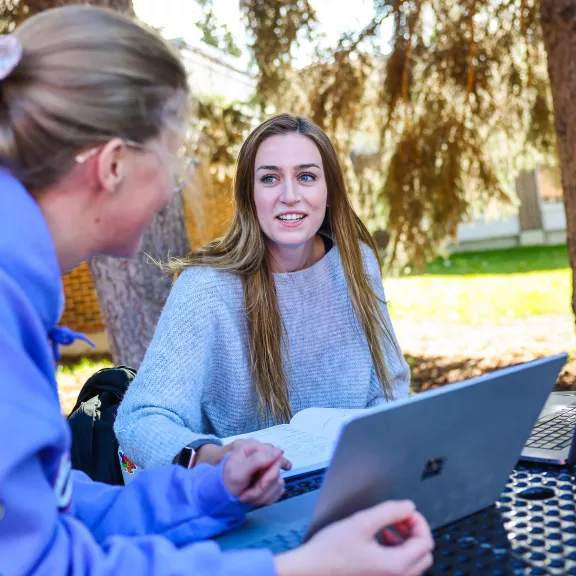Environment & Ecology
Environment & Ecology Applied Research
With a growing emphasis on the area of Environment and Ecology, Red Deer Polytechnic faculty and students actively engage in multifaceted projects that span various aspects of applied research in this sector.
At RDP, collaboration is key. We partner with entities such as governments and community organizations to develop innovative solutions. One example of this is our collaboration with Alberta Transportation which led to the creation of a smartphone application dedicated to monitoring animal-vehicle collision locations, significantly enhancing highway safety measures.
Our Commitment to Applied Research
At Red Deer Polytechnic, we are committed to pushing boundaries, fostering partnerships and driving real change in the area of Environment and Ecology. Through the efforts of our faculty and students, we continue to forge new frontiers in applied research. Join us in our quest to cultivate a more resilient and sustainable future, where innovation and knowledge converge to protect our environment and its inhabitants.

Development of the Alberta Wildlife Watch Program
Drawing on her extensive expertise, seasoned biologist and RDP instructor Sandra MacDougall was instrumental in pioneering the Alberta Wildlife Watch Program. The program employs real-time animal carcass data to identify collision hotspots and embeds strategies for reducing wildlife-vehicle incidents into transportation planning.
The program’s ongoing efforts encompass multifaceted approaches, including the use of mobile applications for reporting animal sightings and carcasses along highways. The data gathered from the use of mobile applications to report animal sighting and carcasses along highways feeds into a comprehensive database, aiding in the identification of collision-prone areas.
The information is leveraged to explore viable solutions, encompassing diverse strategies like overpasses, underpasses, strategic vegetation management, animal detection systems and cautionary signage along highways.
The urgency of this work is underscored by alarming statistics. Annually, over 300 injuries and six fatalities result from vehicle collisions with animals in Alberta. These incidents not only pose a significant risk to human safety but also incur substantial financial burdens, amounting to an estimated $280 million in various costs.
Sandra and her students are now working on the North Highway Connector Project. They are assessing the North Highway Connector ring road built around Red Deer in 2022, wildlife use in and around the underpass and associated wildlife fencing built in conjunction with the ring road.

Research in Agricultural Microbiology
Dr. Cyrus Taheri, a faculty member in the Donald School of Business, leads pioneering research in applied and environmental microbiology, notably addressing root rot, a critical ailment plaguing field pea cultivation across the Canadian Prairies.
Over two intensive years, Dr. Taheri conducted extensive field trials studying the fungal and oomycete communities thriving in pea residues from Alberta and Manitoba. His work involved sampling diseased and healthy pea patches from various fields, meticulously analyzing them to understand the impact on crop health.
His research uncovered crucial insights. Dr. Taheri identified around 50 fungal species, including prevalent pathogens like Fusarium avenaceum, affecting pea, wheat and canola. Remarkably, he found these pathogens surviving winters on pea residues, highlighting their persistence and potential threat to future crops.
Dr. Taheri's findings offer essential knowledge for devising strategies to combat root rot and improve agricultural practices. His work is instrumental in shaping more resilient and sustainable crop management approaches in the Canadian Prairies and beyond.